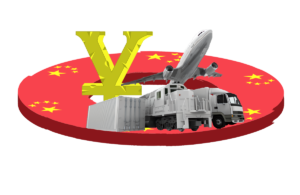A recent Washington Post article reported that United States Secretary of Defense Robert Gates made a historical plea for increased spending on diplomacy and foreign aid [“Gates Urges Increased Funding for Diplomacy,” by Ann Scott Tyson, 27 November 2007]. Traditionally, the Departments of Defense and State have wrangled over budgets with neither being willing to concede ground to the other. There were reports, for example, that Donald Rumsfeld refused to let his people use any of the volumes of research and recommendations about operations in Iraq made by the State Department in the run up to the war. Tyson acknowledges how rare Gates’ position is for a Secretary of Defense.
“Gates called … for a ‘dramatic increase’ in the U.S. budget for diplomacy and foreign aid, arguing that al-Qaeda does a better job than Washington of communicating its message overseas and that U.S. deployment of civilians abroad has been ‘ad hoc and on the fly.’ In a speech that emphasized the importance of ‘soft power’ to prevent and end conflicts, Gates suggested beefing up the State Department’s foreign affairs budget of $36 billion, even as he acknowledged that Pentagon observers might consider it ‘blasphemy’ for a sitting defense secretary to make such an appeal for another agency.”
“Soft power” is a term first coined by Harvard University professor Joseph Nye. It is used to describe the ability of a state (or other political group) to influence the behavior or interests of other political bodies through cultural or ideological means. “Hard power,” on the other hand, is the kind of kinetic action normally carried out by the military — that is, destroying things. In a blog I wrote earlier this month [The Economist Looks at the System Administration], I talked about my colleague Tom Barnett and his concept of a System Administration (SysAdmin) force whose primary purpose is to pursue non-kinetic activities in search of sustainable peace. Secretary Gates seems to be embracing such a force in his call for more aid and diplomacy.
“‘One of the most important lessons of the wars in Iraq and Afghanistan is that military success is not sufficient to win,’ said Gates, delivering the annual Landon Lecture at Kansas State University in Manhattan, Kan. The wars of the future, he said, are likely to be ‘fundamentally political in nature’ and will not be solved by military means alone. … ‘The importance of deploying civilian expertise has been relearned — the hard way’ in Iraq and Afghanistan, Gates said. Such expertise must be strengthened rather than allowed to atrophy as occurred after past conflicts, he said. Four times in the past century the United States has taken a ‘peace dividend’ at the end of a war by disarming and dismantling key national security institutions, Gates said. ‘It will be important not to make the same mistake a fifth time,’ he warned.”
Gates noted that the United States not only reduced the size of the military following the collapse of the Soviet Union, it reduced or eliminated other agencies that played a vital role in helping secure the peace (before, during, and after conflict).
“Gates cited the period after the Cold War when the active-duty Army cut its manpower by nearly 40 percent, and the CIA reduced its clandestine service by 30 percent. Even more shortsighted, he said, was the shrinking of the U.S. Agency for International Development’s permanent staff to 3,000 and the abolition of the U.S. Information Agency — effectively ‘gutting … America’s ability to engage, assist, and communicate with other parts of the world’ through the use of ‘soft power.'”
Any national security analyst can tell you that the transition from war to peace is one of the most difficult and challenging phases to get through. By default, the military plays the biggest role during this transition because there is no other organization equipped, trained, and large enough to shoulder the myriad of tasks that must be completed. Gates openly admitted this during his speech.
“The U.S. military has shouldered much of the burden of the lack of civilian expertise, Gates said, adding that recent civilian efforts in Iraq and Afghanistan — such as the interagency provincial reconstruction teams — had been done ‘ad hoc and on the fly in a climate of crisis.’ He called for developing ‘a permanent, sizeable cadre of immediately deployable experts with disparate skills’ that is integrated with the U.S. government, private sector and institutions of foreign countries receiving assistance.”
In other words, Gates endorses the establishment of a SysAdmin force like the one Tom Barnett has been promoting for years. One of the Pentagon agencies that has fully embraced this vision is the Business Transformation Agency with its Task Force to Improve Business and Stability Operations in Iraq. When Tom and I presented them with our vision of Development-in-a-Box™, they immediately understood its importance and we have been working them ever since. Now that Secretary Gates has endorsed a SysAdmin-like force, I believe much more attention will be given to securing the peace not just to winning the war. Helping war-ravaged or failed states build a foundation for a sustainable and growing economy will play a large role in this new strategy. Enterra Solutions looks forward to playing a role in that strategy along with our development partners. We have also briefed our vision to members of the State Department and have been received warmly there. It would be difficult to move forward if these two vital departments remained locked in their traditional headbutting postures.




